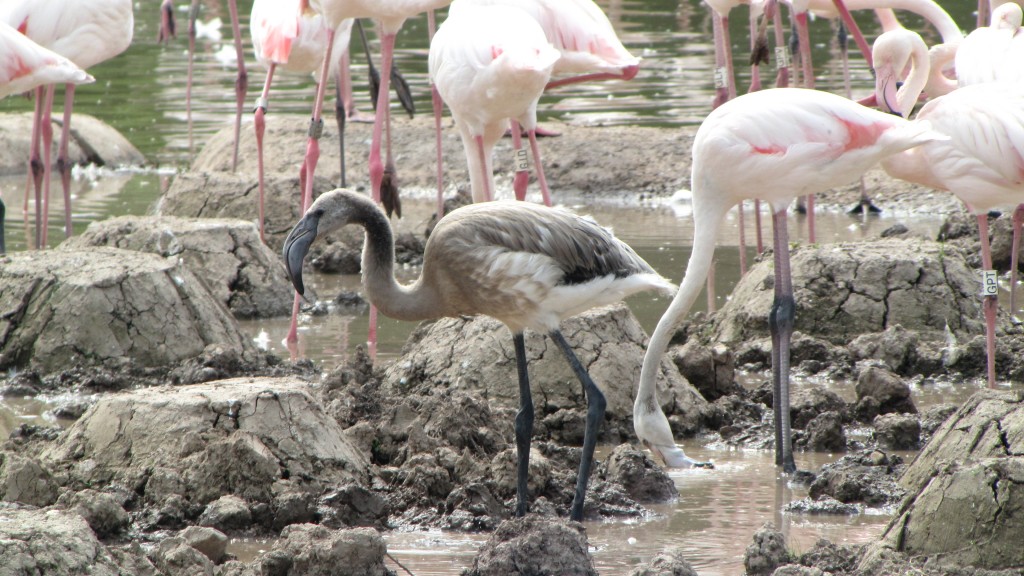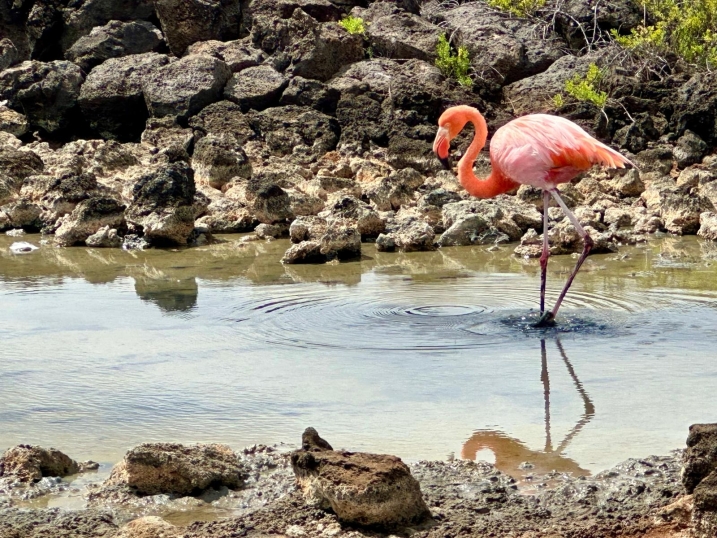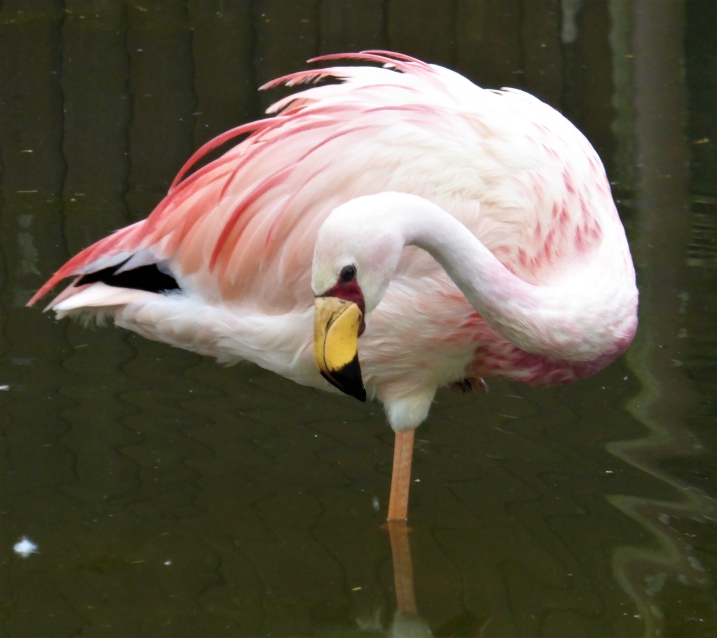How long in the tooth (beak)?
Delving through the literature on flamingo biology brings up a range of interesting, insightful and, at times, slightly odd pieces of work pertaining to these birds both in the wild and in captivity. I have found several pieces of work today reviewing the longevity of flamingos; pieces of work that try to explain why flamingos appear to live so long and what would be the evolutionary benefit of such a great lifespan. As you have probably gathered from previous posts, some of the birds at Slimbridge are of a very great age yet these birds still seem to be reproductively active and show little sign of ageing. There is a lovely paper from the Journal of Zoology back from 1911 that details the age of animals living in the London Zoo at the turn of the last century. The author, Mr. M.P. Chalmers, explains in vivid detail that for a European (greater) flamingo to reach 23 years of age is exceptional and that flamingos settle well in captivity on a diet of grain, and make for a viable and long-term zoo exhibit. Whilst the science of animal feeding has moved on leaps and bounds over the past 100 years, some of My Chalmer's observations are still correct. He notes that most of the veterinary problems with flamingos come when they are first imported into a new collection and that should they settle down and remain calm and stable, they are generally very easy to care for BUT they must have access to shelter in inclement weather. This is something that still rings true today.
With any luck, this juvenile greater flamingo in Slimbridge's new "Flamingo Lagoon" will live way beyond the age of 23!
Moving on to cutting-edge science, another interesting paper by Wasser and Sherman in 2010 looks into the evolutionary reason why flamingos live so long. And we now know that this is a lot longer than Mr Chalmer's 23 years! These authors note that flamingos, along with petrels / shearwaters (seabirds) and parrots have the longest mean lifespans. It would appear that living in groups and breeding in colonies, as well as having a larger body size and being able to fly makes these types of bird more likely to live to a great age. On top of this, because flamingos have a reduced predation risk and less competition for food and habitat, they do not age as quickly as other birds, thus further extending the amount of time they can live for. Now that is amazing.
So as the new generation of flamingos was hatched this year at Slimbridge, and elsewhere in the country where flamingos are kept, who knows what events they will see in their long lives into the future...
[yframe url='http://www.youtube.com/watch?v=nalPW5hSsWU&list=HL1349111575&feature=mh_lolz']



